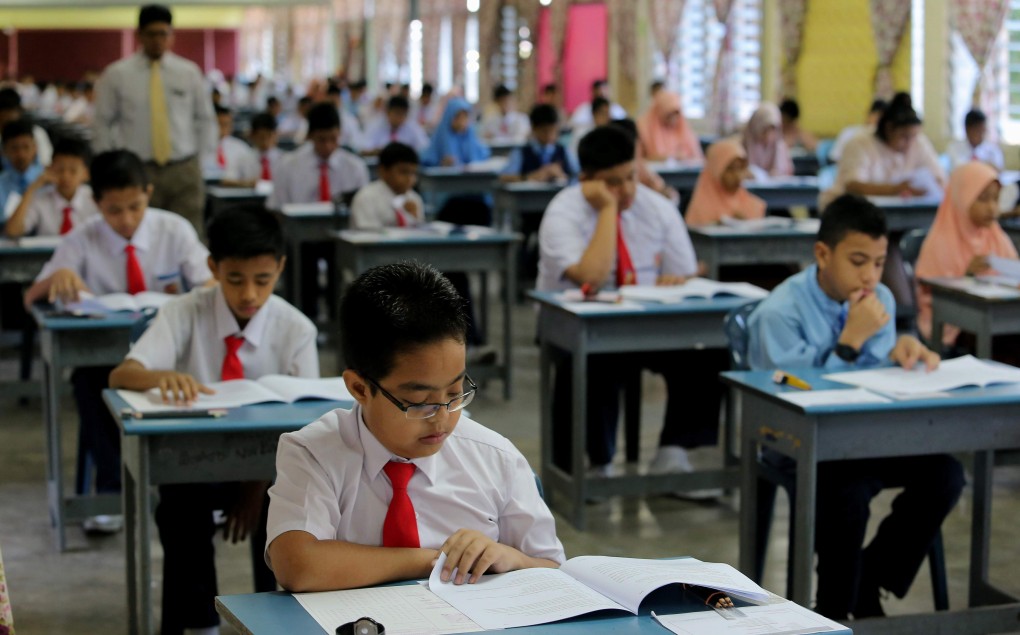By Mohammad Fahmi Ahmad KashfiÂ
Changes have been made again in the education system. We can see that the Ministry of Education has split the English language subject for Standard Six UPSR examination into two components; comprehension and writing in line with the standard curriculum for primary schools (KSSR). The new format of English paper will be effective next year; students who are sitting for the national examination at both national and vernacular primary schools will have an additional subject to face.
PISA shows Malaysia is weak in almost all sectors “ reading, mathematics, sciences and problem solving. Therefore, the additional English paper for the students is likely to be a good step in empowering the language as non-multiple choices questions will be asked in the paper and more higher-order thinking skills questions can be made in short answer questions and writing questions.
This statement has been agreed by one of the lecturers in the Kulliyyah of Education. Dr. Madihah Khalid (2015) believes that the higher-order thinking skills (HOTS) part in Bloom Taxonomy can be implemented better but still hopes that we do not focus too much on exams, lessen the standardised exams and stop putting high-stakes on these exams. We need more comprehensive ways to assess the other performance skills like speaking skills and others.
However, after the discussion has been made, there are challenges to implement this new format in UPSR. According to NUTP President Hashim Adnan (2015), the period of implementation of the paper is too short for both students and teachers to adjust to the new system.
For some reasons, we agree with the statement of President NUTP himself on this matter because we cannot simply implement the new system in a short time within one year because in Malaysia, we have both urban and rural school. We know that most of students in urban area do not have any problem with this matter because their parents are educated. It is in contrast with students in the rural area. They need more time to adjust with a new system. The students and teachers just adapted with the Malaysia Education Blueprint 2013-2015 and suddenly a new format appears to make them once again becoming chaotic.
An English teacher from SK Tunjang, Kedah has been interviewed regarding this issue. According to Noorail (2015) the way of student at rural area think is different with students at the urban area because of the vibes itself. Even to create a simplest complete sentence is too difficult for them. It is tough for them to think and elaborate their own opinion. Their vocabulary is too little. Previously, English is only being graded in one paper, which has both comprehension and writing components. Now, the students will face more assessment with the paper split into two and graded separately.
It is essentially less than three months before the new school year to start, teachers themselves have no references and do not have the expertise in this new system. This is a real problem that they will face throughout a year. Is it appropriate for the teachers to attend to the new syllabus courses in a short time? What’s more crucial is that they want all schools to apply this new system in final exam of standard 5 this year. No doubt this has caused shock among parents as it looks as if the change will interrupt students who are in Year Five in the midst of preparing for their UPSR 2016. This is due to the fact that they have less than a year to adapt to the new format. And this will create a confusing state of mind towards the students.
Despite all the challenges that the community faces, the Director-General of Education, Datuk Seri Dr. Khair Mohamad Yusof (2015) stated that the department had informed the public since 2010 that changes would be made into the UPSR English examination format by 2016.
We will not deny 100% about the positive things regarding this matter. The move to separate the grades for BI comprehension and assessment test is the best efforts to improve English proficiency among the students. However, proper training for teachers and sufficient resource materials are needed to implement this system. Parents and guardians are also the main roles that should understand the system well so they can support it better.
What we want to stress here is that children are not a tool for us to test and experiment to achieve our goals. They are the pearls of the education system. The continuous process of learning someday will make them the ones who would determine the best way to educate the community for the betterment of the society.***
Photo courtesy of NSTP/ Abdullah Yusof
